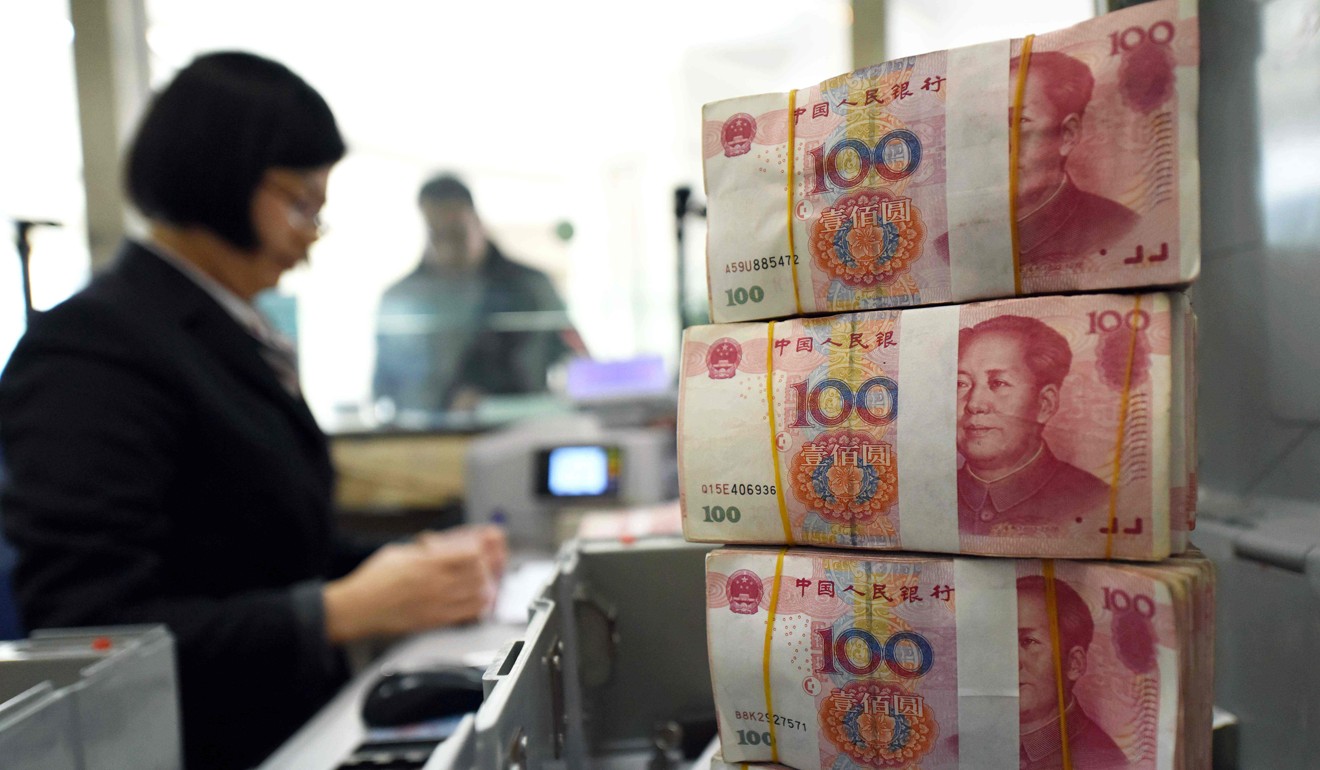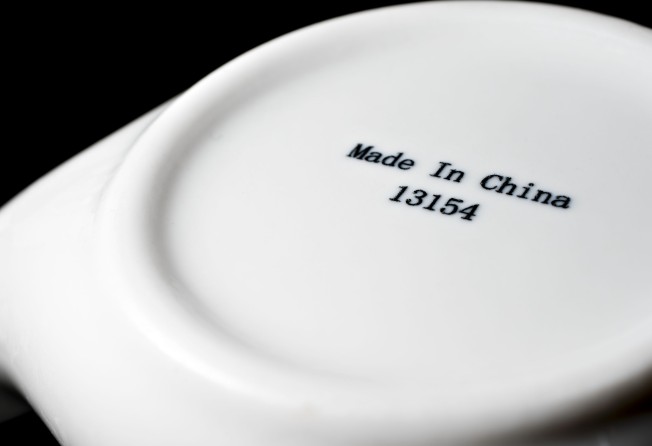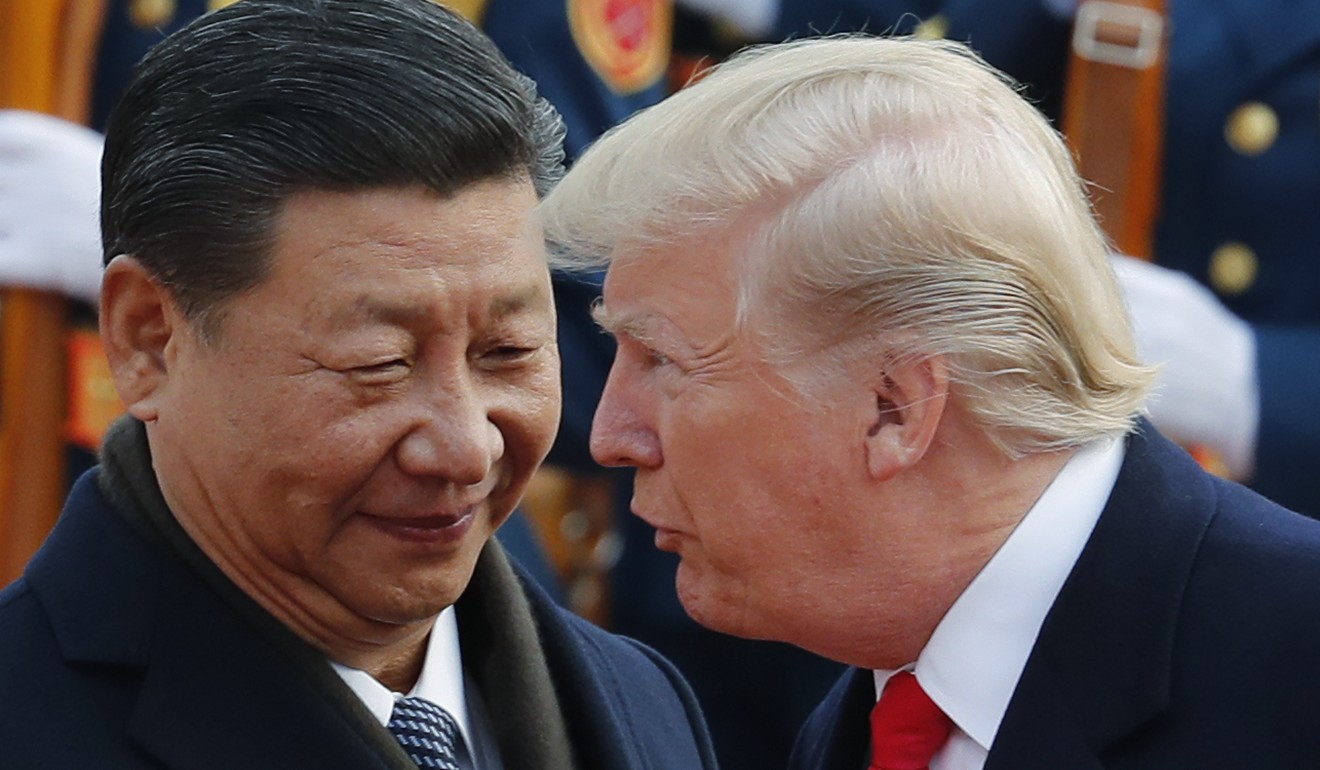
China has ‘nuclear options’ in trade war with US ... really?
In theory, Beijing holds a lot of economic firepower that could do great damage to US financial interests, but the dangers of blowback are so great that China would be wise to keep its powder dry

As the war of words over US-China trade relations has threatened to escalate into open economic conflict, commentators on both sides have argued that China’s most effective defence against US trade and investment restrictions may not lie in imposing countervailing trade tariffs of its own. Instead, they have suggested that China could deploy its “nuclear option”, either by dumping its vast holdings of US government debt in retaliation or by devaluing the yuan.
Both threats sound suitably chilling. But there are problems: the first wouldn’t work and the second would harm China at least as much as the US.
First, let’s look at the idea that China could dump its holdings of US Treasury debt. On paper, this sounds like a credible threat. According to US government figures, China owns almost US$1.2 trillion in US Treasury bonds. If Beijing were suddenly to sell them, say the scaremongers, it would trigger a collapse in bond prices and a sharp spike in US interest rates.

This, they warn, would push up the cost of funding the US government’s swelling budget deficit, lead to higher borrowing costs for US companies and consumers, precipitate a crash on Wall Street, and severely dent international confidence in the US dollar.
Except that is not how things would play out at all. For one thing, Beijing would find itself unable to sell its Treasury holdings in large volume. As word spread that China was on the offer, every private sector bond buyer in the world would run a mile. Beijing would find no one on the other side of the market.
Yes, bond yields would spike higher, but the disruption would be too short-lived materially to affect borrowing costs for either the US government, or for US corporations and consumers. The US authorities would quickly freeze China’s Treasury debt held by US custodians, and the Federal Reserve would step in to buy in whatever quantities necessary to stabilise the market.
At best, China would suffer heavy losses on its Treasury portfolio. At worst, it would find upwards of US$1 trillion of its foreign reserve assets frozen, and rendered effectively worthless.
Granted, international trust in the US dollar would indeed be dented. But the effects would be limited. Major central banks in Europe and Japan would quickly intervene in the foreign exchange market to prevent their own currencies from appreciating excessively against the US dollar.
And of course, any weakening the US dollar did suffer would simply make Chinese products more expensive for US buyers – what the US tariffs are intended to achieve in the first place.
So, if selling its US Treasury bonds wouldn’t work, what about the idea that China could retaliate against US trade restrictions by devaluing the yuan?

The idea would be to boost China’s export competitiveness, so negating the effect of US trade tariffs on imports from China. A quick back-of-an-envelope calculation suggests that to fully counter the proposed US tariffs would require a devaluation of around 10 per cent against the US dollar.
Certainly, Beijing would have no difficulty engineering either a shock one-off depreciation of the currency or a deep depreciation over several months. But both would be high-risk actions, and both would carry heavy costs for China’s ambitious global policy objectives.
First, either a one-off devaluation of the yuan or a steady but significant depreciation would create the expectation among investors and businesses of further falls to come. That would almost certainly trigger capital outflows from China on a scale even greater than those that followed Beijing’s small 2015 devaluation and saw China’s foreign exchange reserves depleted by US$1 trillion. In time, such heavy outflows would trigger a crisis of confidence in China’s domestic financial system, which is already struggling under an economywide debt ratio equal to roughly 250 per cent of China’s gross domestic product. And any deterioration in confidence would inevitably fuel further outflows, in what would rapidly become a self-fulfilling prophesy.

Second, such naked manipulation of the exchange rate as a weapon in a trade war would both win over allies to the US cause and deal a fatal blow to China’s ambitions to establish the yuan as an internationally accepted reserve currency.
Over the last couple of years, Beijing has put a great deal of effort into building the credibility of its exchange rate policy in order to lay the groundwork for attracting international portfolio investment and to persuade other countries to adopt the yuan as a currency for trade settlement.
If China were now to devalue the yuan in a tit-for-trade spat with the US, it would throw its treasured yuan internationalisation ambitions out the window. And in return, the gains from such a devaluation would be highly doubtful.
The policy would antagonise China’s other trade partners around the world, aligning them more readily with the US. And Washington would immediately declare China a currency manipulator, imposing a whole fresh set of penalties on Chinese trade and investment. The costs would outweigh the benefits.
In short, neither of China’s so-called nuclear options in its evolving economic quarrel with the US is an effective deterrent.
If deployed, both would misfire badly. ■
Tom Holland is a former SCMP staffer who has been writing about Asian affairs for more than 20 years